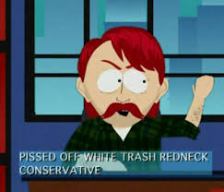Judas and the Black Messiah is pretty fucking great. I wasn’t sure what to expect going in but was elated that Fred Hampton wasn’t softened into a more digestible liberal for the moderate masses. And while politics aren’t a terribly huge component of the movie, we still get Hampton quoting Mao and proclaiming “we’re not going to fight capitalism with black capitalism, but we’re going to fight it with socialism.” Indeed, it’s difficult to see a movie explicitly celebrating an anti-capitalist black radical being made prior to Mike Brown/Ferguson/BLM.
The movie was incredibly well written and acted. It was gripping, emotional, brutal, and enraging (this is the extent of my movie reviewing abilities). Condensing 2+ years, multiple characters and state entities into 2 hours was necessarily bound to leave a ton of essential material out (i.e. Hampton’s break from the NAACP, the background of his partner Akua Njeri, the interrelations between the FBI and Chicago police, etc.). But rather than being seen as detrimental, it should be a catalyst to learn more about Hampton, the Black Panthers, COINTELPRO, and the war fought by the state against its own citizens – which preceded Hampton and survives his death.
***
One of the more profound aspects of the movie is FBI agent Roy Mitchell. He’s neither cartoonishly racist nor a would-be race traitor – just a bland, middle-of-the-road suburbanite. He shows obvious discomfort while being grilled about the supposed horror of his daughter dating a black man by his ghoulish colleagues. If this movie were made 10 or 15 years ago it would be the event that impels him to work within the system for change, or at least cause palpable existential angst – but we see neither.
We don’t get a scene where FBI informant/Black Panther Party infiltrator William O’Neal is kind to his children while Mitchell looks on, experiencing an internal epiphany as a black man is humanized before his eyes. No scene where he confronts the naked racism of his colleagues. He merely is what he is. Arrogantly, he sees patient, incremental progress as the only justifiable means for equality. He executes his role within the state apparatus, secure in his belief that black radical groups are no different than white nationalist groups (which obviously parallels the conservative brain-worm idea that BLM is equivalent to the Proud Boys).
Roy Mitchell is just one of the unremarkable faces nestled within the bosom of systemic/structural racism. Countless more like him are dissolved into this amorphous morass: politicians, capitalists, bankers, real estate brokers, landlords, cops – and their vast army of underlings performing the banal work of maintaining the systems and structures that produce/reproduce racism. Most are well compensated and few experience consequences – what they do, after all, is perfectly legal. This is as true during Hampton’s short life as it is today. Such people are occluded when politicians do little more than pay lip service to systemic/structural racism. Behind that sprawling framework are people just like Mitchell doing their jobs, sometimes with and sometimes without malice.
***
This is mentioned in articles and reviews but a little is lost in the portrayal of William O’Neal as a man in his late 20’s when he was actually 17 when blackmailed and terrorized into working for the FBI (similarly, Hampton was 21 when he died and played by an actor in his 30’s). We should not forget that this was a literal child bullied by the might and force of racist state power. This is not to excuse his heinous actions but it is an essential component to understanding the context of how/why O’Neal did what he did.
This can likely go without saying, but none of what happened to O’Neal (and Hampton, of course) should be seen as relics of a bygone era. State power continues to harass, imprison, and infiltrate those agitating outside of legal, polite channels for long-delayed justice and inequality. One need look no further than the suspicious deaths of prominent Ferguson activists, or the brutality displayed by cops all over the country to peaceful marches and demonstrations.
As the title of the movie implies, and as the Lucas Brothers make explicit, Hampton and O’Neal embody the extreme duality underlining how one chooses to act in a patently unjust society. Hampton is a principled revolutionary willing to die for what he believes. He refuses money that would guarantee his personal freedom and instead directs it toward furthering the cause. O’Neal is solely concerned with saving his own skin, and takes his blood money to become a small business owner, thus fulfilling the American dream. One loses his life, the other his soul. Between these two shores – collective revolution and individualistic counter-revolution/collaboration – is an ocean where some hew closer to one side or the other, while the masses cluster in the middle, primarily concerned with finding their socioeconomic niche within a society they have little interest in materially changing.
I don’t really know how to end this except to say the powers that be would love for all of us to be more like William O’Neal than Fred Hampton.



